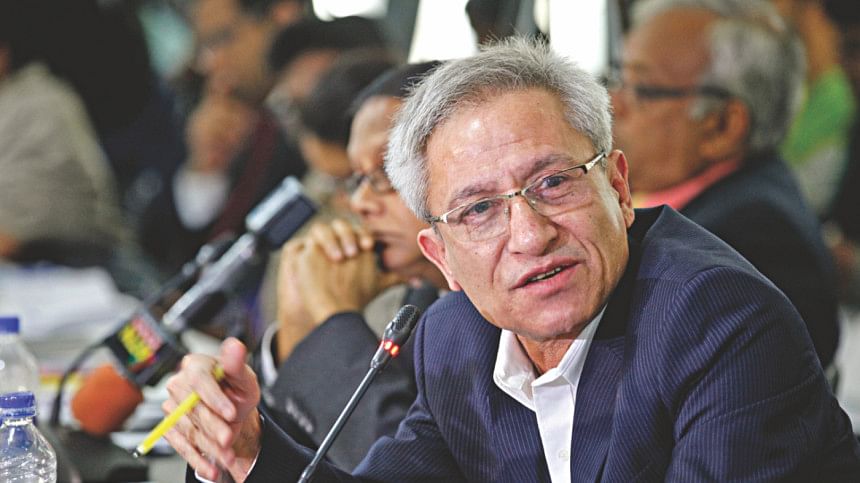Duty benefit won't vanish overnight

Duty-free and quota-free access for Bangladesh's exports will not come to a screeching halt the moment the country graduates from the least developed country bracket, said an expert yesterday.
"There is hope," said Zahid Hussain, lead economist of the World Bank's Dhaka office, at a session on Bangladesh's transition from LDC status at the Bangladesh Development Forum that ended yesterday.
There are non-LDCs who get LDC benefits and there are LDCs who do not get LDC benefits, he said.
"My point is there are other factors that are also at work," Hussain said at the event organised by the finance ministry at the capital's Sonargaon hotel.
Bilateral negotiations with trading partners, particularly with the EU and Canada, can limit the loss of preferential market access.
"What we need is proactive efforts in developing our negotiating capacity."
He called upon policymakers to assess the impact on Bangladesh for transitioning from LDCs such that issues and concerns can be raised properly in negotiations during the transition period.
The country's exports may face an increase in tariffs in the markets where its products get duty-free and quota-free access at present.
This may put 5.5-7.5 percent of Bangladesh's exports at risk, he said citing estimates by the United Nations Conference on Trade and Development and the Centre for Policy Dialogue.
So, there are challenges but there are also opportunities, Hussain said.
"And we can also renegotiate some of the provisos that currently exist which we do not like," he said citing the Rules of Origin as a case in point.
His comment came as a United Nations panel, the Committee for Development Policy (CDP), is expected to put Bangladesh on its graduation list this year as the country meets all three criteria: Gross National Income per capita, Human Assets Index and Economic Vulnerability Index.
The CDP will review Bangladesh's progress in 2021, and after a three-year transition period, official graduation from the LDC category will take place.
Hussain said Bangladesh should graduate with momentum.
"We have to capitalise on the demographic dividend," he said, while calling for building human capital through health, education and skills, increased investment and innovation-enabling reforms. Ahsan H Mansur, executive director of the Policy Research Institute of Bangladesh, said the country needs to start its homework now.
"We have to overcome the market access issue. We have to negotiate," he said, adding that Vietnam did well in negotiating trade agreements with countries such as the US.
He also emphasised enhancing efficiency at all levels and the skills of workers. In a paper on LDC transition, Economic Relations Division's Secretary Kazi Shofiqul Azam said international support will gradually be withdrawn once Bangladesh moves out of the LDC group by 2024.
"Graduation will have impact on Official Development Assistance," he said, adding that a debt management strategy would be required. The move into the developing country bracket will also open up opportunities for south-south trade.
"Non-LDC specific Generalised System of Preferences scheme will open new windows of cooperation with developing countries."
Reporting requirements and consultative efforts could be a good opportunity for global support, he added.
Prime Minister's Economic Affairs Adviser Mashiur Rahman, United Nations Industrial Development Organisation's Regional Representative for South Asia Van Berkel Cornelius Wilhelmus Maria, and Commerce Secretary of Bangladesh Shubhashish Bose also spoke.

 For all latest news, follow The Daily Star's Google News channel.
For all latest news, follow The Daily Star's Google News channel. 



Comments